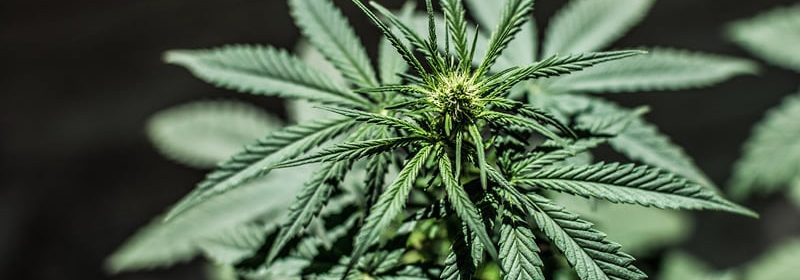Whole-plant Cannabis Linked to Large Reduction in Seizures

Whole-plant cannabis is linked to a significant reduction in seizures in children with severe treatment-resistant epilepsy, early research suggests.
In a small case series, children with severe treatment-resistant epilepsy treated with a range of whole-plant extract cannabis-based medical products (CBMPs) reported an 86% reduction in monthly seizures.
All participants had no improvement with traditional antiepileptic drugs (AEDs).
The study adds to a small but growing body of research investigating whole-plant cannabis medicines containing tetrahydrocannabinol (THC) in pediatric epilepsies.
Rayyan Raja Zafar
“Although we have previously noted the superior efficacy of whole-plant medical cannabis is a previous group of children, to find that the effect of the treatment resulted in an 86% average reduction in seizures is remarkable and testament to the clear clinical value of this intervention,” lead author Rayyan Raja Zafar, a doctoral student with the Centre for Psychedelic Research and Neuropsychopharmacology, Imperial College London, United Kingdom, told Medscape Medical News.
The findings were published online December 14 in BMJ Paediatrics Open.
Superior to CBD?
The retrospective case series included 10 children under age 18 years who were recruited through MedCann Support and End Our Pain, charities that represent children who use medical cannabis to treat intractable epilepsies. Data were collected from patients’ parents or caregivers between January and May 2021.
Patients presented with a range of epilepsy etiologies and reported a mean of 7 (±4.58) AEDs prior to initiation of CBMPs. Two patients experienced no symptom improvement after taking Epidyolex, a purified cannabidiol (CBD) approved by the European Commission in 2019 for the treatment of rare forms of epilepsy. The formulation was approved by the US Food and Drug Administration in 2018 under the name Epidiolex.
All participants received CBMPs, including Bedrolite (<1% THC and 9% CBD), Bedica (14% THC and <1% CBD), Celixir 20 (<1% THC and 20% CBD), Sweet Pink CBD (<1% THC and 10.6% CBD), and Althea 100 (<1% THC and 10% CBD). Medications were prescribed to patients by clinicians in the National Health Service or by private medical practices.
Patients consumed a mean of 5.15 (±6.8) mg of THC a day and a mean of 171.8 (±153.3) mg of CBD daily.
All patients reported fewer seizures, ranging from a decrease in monthly seizure activity of 62.5% to 100%. The average decrease was 86%.
“It appears that whole-plant cannabis is superior to CBD alone, and the reasons for this are speculative,” Zafar said.
“It is known that THC does have independent antiseizure activity; however, much less is known of the role that other minor cannabinoids and terpenes in the cannabis plant play,” Zafar added.
“There has been some preclinical testing down to suggest they also have antiseizure activity, and so the compounded effects of whole-plant products seem to be working better than just an isolate.”
Selection Bias?
Commenting on the findings for Medscape Medical News, Tyler Allison, MD, associate professor of pediatrics at Children’s Mercy Kansas City, Missouri, noted that researchers chose patients based on their long-standing use of whole-plant medical cannabis oils, introducing a selection bias.
“The response is still interesting, and I think it needs to be studied further with better parameters in place to reduce bias, but I don’t think it’s fair to evaluate the amount of decrease in seizure frequency when the population studied was only patients who responded to the treatment,” said Allison, who was not involved with the research.
“How many patients tried whole-plant cannabis oil and didn’t find it to be effective or at least more effective than their other antiepileptic treatments?” he asked. “That information is missing and could significantly impact the significance of the study.”
The selection bias and small study group also make it difficult to compare the results to prior studies of isolated CBD that involved larger patient populations, Allison added.
An intention-to-treat, randomized study design that compared a control group treated with a form of isolated CBD product and a second group that received whole-plant cannabis oils would remove that bias, he noted. “Then they could analyze the frequency of seizures in the same way as they did and compare across groups to see if whole-plant cannabis oil shows a reduction in seizure frequency by comparison to a similar drug,” he said.
This is a design Zafar noted he and colleagues are interested in pursuing.
“We are beginning research to understand further the role of minor cannabinoids and terpenes in the treatment of this condition, as we want to further understand why we see a superior clinical effect in whole-plant medicines,” he said.
He added that they also plan to partner with academic and commercial collaborators on additional retrospective and prospective studies on these issues.
The study was unfunded. Zafar has reported no relevant financial relationships. Disclosures for the other authors are listed in the original article. Allison report no relevant conflicts of interest.
BMJ Paediatr Open. Published online December 14, 2021. Full text
For more Medscape Neurology news, join us on Facebook and Twitter.
Source: Read Full Article
